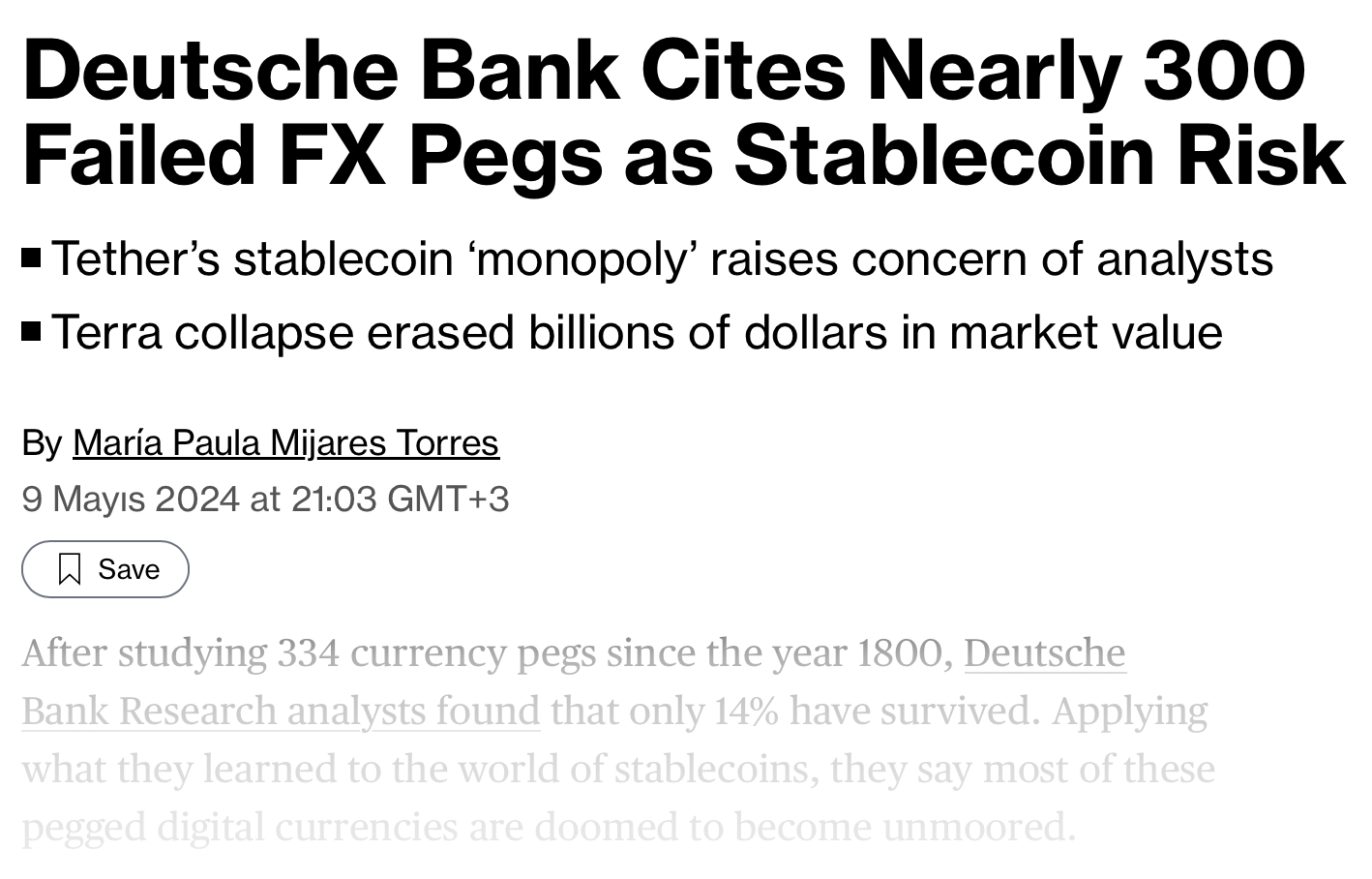Research analysts at Deutsche Bank have issued warnings about stablecoins. The analysts expressed concerns about the stability of the stablecoin market, anticipating difficulties for many of these altcoins, which are pegged 1:1 to a fiat currency, in the future.
Most Stablecoins Expected to Disappear
The bank’s study, which examined 334 stablecoins, found that only 14% have managed to survive so far. The analysts suggest that while some stablecoins may continue to exist, the likelihood of failure for most is high, highlighting the need for more reliability in the sector.

Typically pegged 1:1 to fiat currencies like the US dollar or Euro, stablecoins offer cryptocurrency investors a way to trade digital assets while generally protecting them from the volatility often associated with cryptocurrencies. However, analysts emphasize that the success of a fiat-pegged value depends on factors such as reliability, reserve support, and strong operational controls, which many stablecoins currently lack.
For instance, the market value of USDT issued by Tether has exceeded $100 billion and consistently has higher daily trading volumes than Bitcoin. Despite its dominance, Tether has been scrutinized for transparency and reserve assets and has received fines from regulatory authorities. Concerns continue to be raised about Tether’s role in facilitating criminal activities and its impact on the cryptocurrency derivatives market.
A notable cautionary tale highlighted by Deutsche Bank analysts was the collapse of Terraform Labs’ algorithmic stablecoin TerraUSD and its associated token Luna. This collapse resulted in significant losses for cryptocurrency investors, critically exposing the potential risks inherent in the stablecoin market, especially when issuers fail to maintain adequate reserves and transparency.
Marion Laboure, a senior strategist at Deutsche Bank Research, underscored the similarities between stablecoins and pegged currencies, pointing out their common dependence on reserves and reliability. Laboure stated that both are subject to speculative pressures and largely follow the value of the US dollar, serving as a close proxy for pegged currencies.
Tether Responds to Report
In response to Deutsche Bank’s report, Tether defended itself by criticizing the lack of concrete evidence and clarity in the German giant’s analysis. Tether emphasized its commitment to providing regular statements on its reserves and addressing regulatory concerns.

 Türkçe
Türkçe Español
Español










